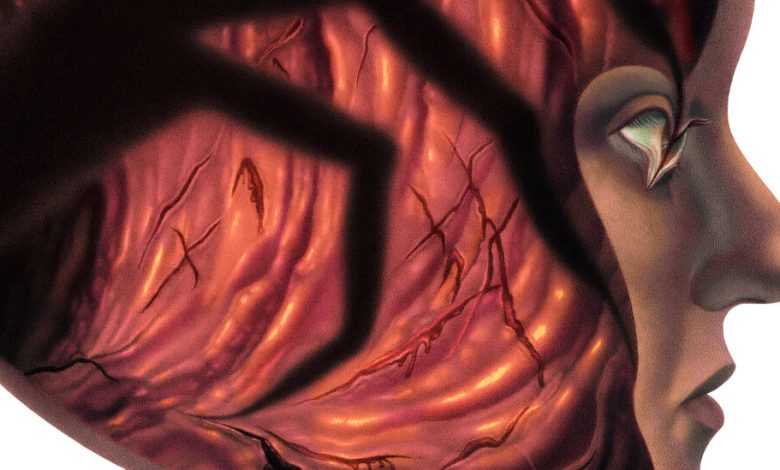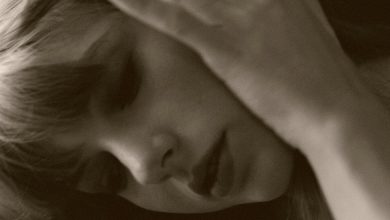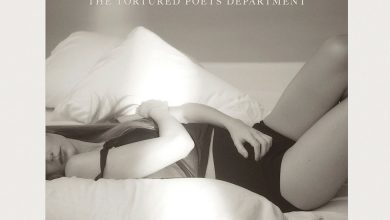Why Do Evil and Suffering Exist? Religion Has One Answer, Literature Another.

In the church of my childhood, we believed God’s angels battled demons in a war for our souls. This was not a metaphor. We were Pentecostals, though not strictly and not always. We weren’t picky about denomination; what mattered was belief in the redeeming blood of Christ, in the Bible literally interpreted and in God’s endless love. And evil. We believed in evil.
Sometimes evil was obvious — lies, betrayals, the misfortunes of innocents — but just as often it was camouflaged and seductive. It lurked in the card game, in the pop song and on the movie screen. It was in the allure of those things prohibited by religious or moral standards. The world was sunk in an evil passed down through Adam and Eve’s original sin and their fall from Eden.
I long ago abandoned this version of reality, but the questions it meant to address persist: Are the sensational evils that continue to plague us — murder and torture and its ilk — an expression of a (metaphorically) fallen world? Why these wars and more wars, these repeating atrocities of every stripe? How do we navigate a world beset by dark forces, and what do we do in the face of the suffering they cause?
Evil looms large in James Baldwin’s first novel, “Go Tell It on the Mountain,” set in 1930s Harlem. The novel unfolds on the protagonist John Grimes’s 14th birthday, a moment of spiritual and psychic reckoning for his fervently Pentecostal family. Young John is pious, though he has not yet given his heart to Jesus Christ. His salvation is nigh, but first he must wrangle with temptation. He takes the few coins his mother gives him as a present and leaves Harlem on foot by way of Central Park. The Grimeses are a poor family, squeezed by the ubiquitous racism of the times, and further beleaguered by John’s father’s weaponized Christianity, which slaps and shoves and bellows at his wife and children.
In Midtown, luxe shop windows beckon and well-heeled white women stride down the wide avenues in furs. John takes in this Manhattan of plenty: “The way of the cross had given him a belly filled with wind … but here, where the buildings contested God’s power and where the men and women did not fear God, here he might eat and drink to his heart’s content.” Baldwin’s language recalls Christ’s temptation in the wilderness in the Gospel of Matthew, where Satan “showed Him all the kingdoms of the world and their splendor. ‘All these things I will give you,’ he said, ‘if you will fall down and worship me.’”
John’s temptation is short-lived. Baldwin quickly reminds us that the wealthy white world below the park is not available to John, nor to any Grimes. Evil here is double-edged: The spiritual threat John fears in secular godlessness is yoked to the social evils of economic inequality and racism that circumscribe his family.
With a heavy heart, John returns home to his family’s troubles and the safety of the church, “not daring to feel it God’s injustice that he must make so cruel a choice.” Despite the demands of their faith, John and his family hold fast — belief buoys them and transcends the hardships of their lives. It is fiercely and utterly theirs, and cannot be taken from them, even in a world in which so many other things are denied. There is a pragmatic utility as well: The Grimeses believe religious strictures around behavior — including prohibitions against alcohol and sex outside of marriage — protect their bodies and minds, the sanctity and value of which are under constant threat. Social evils — racism, economic disparity and homophobia — take center stage in the novel and cause immense suffering, as evil of any kind inevitably leads to agony.
Baldwin is less interested in metaphysical questions about evil than in its effect on his characters’ lives and spirits, and how (or if) they withstand it. His approach will guide this essay, in which theodicy — the theological conundrum of reconciling the existence of God with the existence of evil — is similarly peripheral. Christianity has devoted an awful lot of thought to this question: If God is all powerful, and all good, how can evil exist? To my mind, there are more palpable concerns; perhaps fixation on an unanswerable question distracts from evil’s heavy toll. More urgently, we are called to address the suffering it causes.
In S.M. Hulse’s novel “Black River” (2015), the protagonist, Wes Carver, wrestles with his faith, and a painful past, in the aftermath of evil. After many years, Wes returns home to the fictional Montana town of the title following his wife Claire’s slow death from cancer. He left behind a now adult stepson, Dennis, with whom he has a troubled relationship, along with a slew of frayed social connections and the state prison in which he worked as a corrections officer. Bone-aching winter is coming soon and Wes’s grief is so intense that it’s a haunting: “Wes kept seeing Claire at the periphery of his vision. … Not quite hallucinations. Not quite ghosts.”
Black River is a company town — most residents are employed by the prison in some way, sons following their fathers into the work. People in Black River have known one another all their lives. They are polite, if laconic; they go to church, help one another in tough times. They are decent people, but they view the world in stark dichotomies: good versus evil, the law-abiding versus criminals. Such divisions are perhaps inevitable in a town where livelihoods and identities are tied to the bleak carceral system. In Black River, and for Wes, bad folk and bad behavior have a fated quality; evil is immutable and cannot be vanquished, even if it goes dormant for a time. Wes helped raise his stepson, Dennis — born to Claire after she was sexually assaulted — all the while “waiting for the poisonous half of Dennis’s blood to show itself.”
Wes’s departure from Black River was occasioned by a riot in the prison during which Wes was held captive and tortured for 39 hours by a man named Bobby Williams. The torture was methodical and sadistic: Williams burned Wes with cigarettes, broke two ribs, carved letters into his flesh and snapped his fingers one by one. Wes was a gifted fiddler; when we meet him his gnarled fingers can hardly curve around his bow. Now, after decades in prison, Williams is up for parole and proclaims himself a changed man, born again in Christ.

Credit…Chloe Niclas
Wes doesn’t buy it. He’s convinced Williams has invented his faith to sway the parole board. “He’s an inmate,” Wes tells a local pastor. “Saying he’s dishonest is redundant.” The pastor initiates a discussion about forgiveness, but Hulse pivots to the dark heart of Wes’s righteous outrage. “When I said he doesn’t deserve it, I didn’t mean Williams doesn’t deserve forgiveness,” Wes says. “I mean God. He doesn’t deserve God.” Wes goes on: “A man like that doesn’t deserve to believe when I spent my whole life trying and still can’t do it.”
Williams is paroled. Wes meets him on a cold morning as Williams waits for the bus that will take him out of town. Wes’s hands ache where his broken bones fused badly; a gun weighs in his pocket. Wes hopes he can look into Williams’s eyes and see whether he is a changed man. But his seeking yields nothing: “I know I don’t like you and I wish more than anything you were still locked up. … All I got’s your word that you are what you say you are.” Williams responds, “So. … What are you going to do?” And Wes says: “I’m going to believe you.”
Like Job in the Hebrew Bible, Wes voices his indignation at the injustice of all that has transpired, at how he’ll never know why such evil has befallen him. He imagines the satisfaction he’d feel from firing his revolver. Ultimately, though, he keeps the gun in his pocket and drives home. He may not actually believe Williams but he has taken the harder path, and chosen to believe him.
Wes’s choice calls to mind the philosopher Paul Ricoeur’s ideas about what’s left to us when theodicy reaches its limits: “We believe in God in spite of evil,” he writes. It’s a bitter pill, but to believe in spite of is the only way Wes will ever be able to attend to what yet lives in his life. It’s a way to retain his humanity in the face of all that he has lost, and may yet lose if he cannot find some means of spiritual survival.
Hulse implies, too, some shift in Wes’s belief in the indelibility of evil. As the biblical prophet Jeremiah wrote: “In those days they shall no longer say: ‘The parents have eaten sour grapes, and the children’s teeth are set on edge.’” That is, the children need not pay for the sins of their parents. Wes returns home to find his stepson undone, unable to put down a suffering horse too old to survive another harsh winter. “I could be there with you,” Wes says. “When the vet comes. If you want.” His words convey more tenderness than he has ever shown his stepson.
Hulse doesn’t shortchange the horror of Wes’s experience. Both Wes and Williams are part of a penal system so poisonous and compromised that it multiplies evils rather than curbs them. Prisons beget more prisoners, which beget more prisons. In “Black River,” these political and social realities don’t negate Williams’s crime, nor the spiritual aspects of Wes’s trajectory toward a subtle redemption. But they do argue against a conception of evil as anomalous and unalterable, always and only supernaturally derived. If we think of evil purely in metaphysical terms, we risk overlooking our collective responsibility to work toward its eradication. If we consider Dylann Roof, for example, to be an anomalous evil, we miss the fact that he is the product of the endemic social evils of white supremacy and our nation’s staggering number of easily accessible firearms. What he did is singular, but the evil that created him is no mystery.
Julie Otsuka’s “When the Emperor Was Divine” (2002) opens in Berkeley, Calif., nine days before the family at the novel’s center are forced from their home into internment camps. It’s 1942, the United States has recently entered World War II and President Roosevelt has issued an executive order to intern Japanese people, many of them American citizens, without trial or due process. Otsuka writes: “The sign had appeared overnight. On billboards and trees and the backs of the bus-stop benches. It hung in the window of Woolworth’s. It hung by the entrance to the Y.M.C.A. It was stapled to the door of the municipal court and nailed, at eye level, to every telephone pole along University Avenue.” Her unnamed characters — “the woman,” “the boy,” “the girl,” “the father” — are specific and archetypal at once. It’s an affecting narrative choice: We too are these people.
The day before the family’s departure, while the children are at school, the woman busies herself with tasks. She buys tape and twine at the hardware store and has a disturbingly anodyne conversation with the owner about her pretty red dress and a few rotten shingles on her roof. She goes to a department store to buy a duffel bag only to find that this item is, tellingly, sold out.
The juxtaposition of these banal errands with the evil that occasions them is chilling. When the woman returns home, she cleans and packs, burying the family silver in the backyard. She calls the family’s “old and ailing” pet dog, and gives him a bowl of rice balls and raw egg, topped with leftover salmon. “Hush,” she tells him. “Play dead.” While the dog’s eyes are closed, the woman brings a shovel blade down on his head. The scene is without embellishment. Otsuka’s restraint brings the outsize horror to the fore, where a more dramatic, louder prose might distract.
The next morning, the family — without the father, who has already been arrested — travel to a “civil control station,” where they receive identification numbers they must pin to their clothing. After a few months in fly-infested stables converted to bunkhouses, they are herded onto trains that take them to a remote part of Utah. The America the family sees from the window — their country — is exceedingly beautiful, a counterpoint to their grim situation. These scenes also gesture toward something like hope for life beyond their current circumstance. Natural beauty goes on, despite the evil humans do. On the first night of their train journey, the girl spies a herd of wild mustangs: “The sky was lit up by the moon and the dark bodies of the horses were drifting and turning in the moonlight and wherever they went they left behind great billowing clouds of dust as proof of their passage.”
Present, too, are repeated references to religion. The train passes through idyllic towns where “church bells were ringing, and the streets were filled with people in their Sunday clothes walking home from the morning service.” At the camp in Utah, a fellow interned man recites the Salute to the Imperial Palace, in defiance of the prohibition against Shinto practices. Late at night, the woman in the family recites the Lord’s Prayer.
In her 2009 book “Enfleshing Freedom,” the theologian M. Shawn Copeland traces Western Christianity’s entanglement with colonization, the trans-Atlantic slave trade, Native genocide and other societal evils that find justification in “compromised Christian thinking about the meaning of human being.” Distortions of Scripture aid and abet these sins against our fellow human beings. In Genesis, after Ham sees Noah naked, Noah curses Ham’s son Canaan — falsely identified by later interpreters as a progenitor of Egyptians and other dark-skinned people: “Cursed be Canaan! The lowest of slaves will he be to his brothers.” The curse of Ham was used for centuries in defenses of slavery — enslavement, so the argument went, was the lot and inheritance of Black people.
Devaluation of others’ humanity continues to open the door to every sort of violation — including the ressentiment evident in the internment of the Japanese in Otsuka’s novel. Today, we are once again witness to mothers wailing over their children’s dead bodies, bombed hospitals — violence and suffering so vast it is unfathomable. Copeland suggests a remedy for these transgressions through a theology of solidarity, in which we “apprehend and are moved by the suffering of the other, we confront and address its oppressive cause and shoulder the other’s suffering.” This is not mere feel-good sentiment; Copeland is proposing action and rigor. To bear another’s burden demands vigorous intervention, in whatever mode we can manage. To see another’s life as sacred reminds us that our own is too, and requires that we behave with the dignity of creatures whose lives matter.
There is an echo of this idea in Wes’s quiet attempt to repair the rift with his stepson, and, more poetically, in a moonlit herd of mustangs glimpsed by a child on her way to a concentration camp. These little expansions of psyche and spirit stand against what Copeland calls the “destructive deformation of ourselves.”
But let us not restrict suffering and evil to the confines of social and political injustice. Another work by Baldwin, the short story “Sonny’s Blues” (1957), shows us that neither evil nor its consequences can be fully rectified through moral renewal. The titular Sonny is a jazz pianist of prodigious talents whose troubled soul led him to drug abuse and a stint in prison. His brother, from whom he has been estranged, is the story’s narrator. The brother’s life is more conventional: He marries and becomes a schoolteacher. He disapproves of nearly every choice Sonny has made.
The story opens on the day Sonny’s brother reads about Sonny’s arrest in the paper. There follows as evocative a metaphor for suffering as I’ve read: “I was scared. … A great block of ice got settled in my belly and kept melting there slowly all day long. … It kept melting, sending trickles of ice water all up and down my veins, but it never got less.”
The brothers grew up with scant means; racist violence dogged their past and assaulted their futures. But the story doesn’t stop there. “Sonny’s Blues” reckons with other intractable sorrows: our isolation and loneliness, the fact that all we are and know will end, the existential anguish we used to call the human condition. Sonny and his brother are an amalgam of suffering caused by injustice and that other kind for which there is no real redress.
In “Sonny’s Blues,” Baldwin’s characters face the abyss through creative expression. Among other things, the story is a meditation on the spiritual and reparative function of art. Here, that art takes the form of the music of the title, described through twin poles of lament and jubilation.
After his release from prison, Sonny stays with his brother in Harlem. A couple of weeks later, the brother watches from his apartment window as Sonny lingers near a group of revival singers on the sidewalk below. “As the singing filled the air the watching, listening faces underwent a change. … The music seemed to soothe a poison out of them; and time seemed, nearly, to fall away … as though they were fleeing back to their first condition, while dreaming of their last.” Later, while the brothers have a couple of beers in the living room, Sonny comments on the immensity of pain the lead singer must have experienced to sing the way she did: “It’s repulsive to think you have to suffer that much.”
The singer’s lament occasions a profound exchange between the men: “But there’s no way not to suffer — is there, Sonny?” his brother asks. “No, there’s no way not to suffer,” Sonny replies. “But you try all kinds of ways to keep from drowning in it. … You know?”
The brother does know; his 2-year-old daughter, Grace, died of polio while Sonny was in prison. “Isn’t it better then,” he says, “just to take it?”
“But nobody just takes it,” Sonny replies. “That’s what I’m telling you! Everybody tries not to.” It’s the trying not to that gets to the heart of our humanity, in all its catastrophe, and its glorious, pitiable, unending strivings and bearing up.
At the end of the story, the brothers go to a jazz club where Sonny plays for the first time in over a year. His brother is suspicious of the other musicians and of the music itself — perhaps jazz was Sonny’s ruin, and if he returns to the piano it might tear him apart again. But the brother chooses, in sincerity and love, to believe in Sonny in spite of his doubts. Sonny is halting and unsure at the beginning of his set, but a few songs in, the dam breaks. He plays all of that woe and wonder — and survives it. Baldwin reminds us that “deep water and drowning were not the same thing.”
Sonny’s song begins as a wail but builds into something that is “no longer a lament.” It is a passing through that recalls the spiritual catharsis of “Go Tell It on the Mountain,” but in this instance Sonny shines with the glory of artistic endeavor, of finally saying that unsayable thing he’s been getting at all along.
In “Go Tell It on the Mountain” the “threshing floor” is the parishioner’s term for being laid low before God. It’s a metaphor for our vulnerability, for our subjugation to suffering and evil in all its forms, and our outcry against it. Here is Baldwin’s soaring address on the subject in “Sonny’s Blues”: “For, while the tale of how we suffer, and how we are delighted, and how we may triumph is never new, it always must be heard. There isn’t any other tale to tell, it’s the only light we’ve got in all this darkness.” Oh, but what light!
Ayana Mathis’s latest novel, “The Unsettled,” was published in September.



